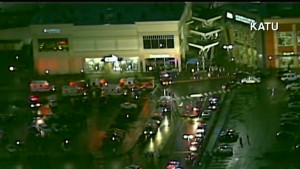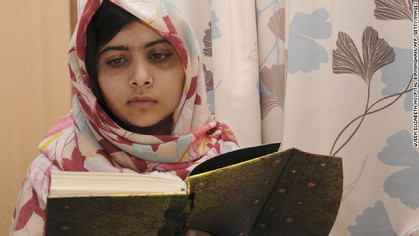http://www.cnn.com/2012/12/16/opinion/australia-gun-laws/index.html?iid=article_sidebar
With the MANY recent shootings happening across the country (2 IN THE PAST 5 DAYS), people are starting to wonder whether strict gun control could help eliminate this senseless violence. Well, the answer to that is yes, and history can prove it.
In April 1996, in the popular tourist spot of Port Arthur, Tasmania, a gunman killed 20 innocent people with his 29 bullets, all in about 90 seconds. This "pathetic social misfit," to quote the judge in the case, used a similar military-style rifle to the one used by the Connecticut killer.
Australia had just elected a new conservative prime minister at the time, John Howard. He wept and mourned the deaths, but then did something to prevent a similar situation from happening again: he announced nationwide gun reform. He banned rapid-fire rifles and shotguns, tightened gun owner licensing, and registered remaining firearms to uniform national standards. Attitudes to firearms and the regulations governing them changed almost overnight. After a decade of gun massacres, Australians had had enough of it all. In fact, polling at the time measured public approval of his government's new gun laws at 90-95%.
In two nationwide federally funded gun buybacks, plus large-scale voluntary surrenders and state gun amnesties, Australia collected and destroyed more than a million firearms, almost one-third of the national stock. No other nation had ever attempted anything on this scale. But, it seems to have worked. In the years after the Port Arthur massacre, the risk of dying by gunshot in Australia fell by more than 50% -- and stayed there. In the 16 years since the announcement of legislation specifically designed to reduce gun massacres, Australia has seen no mass shootings. The national rate of gun homicide remains 30 times lower than that of the United States, an appalling figure.
With the MANY recent shootings happening across the country (2 IN THE PAST 5 DAYS), people are starting to wonder whether strict gun control could help eliminate this senseless violence. Well, the answer to that is yes, and history can prove it.
In April 1996, in the popular tourist spot of Port Arthur, Tasmania, a gunman killed 20 innocent people with his 29 bullets, all in about 90 seconds. This "pathetic social misfit," to quote the judge in the case, used a similar military-style rifle to the one used by the Connecticut killer.
Australia had just elected a new conservative prime minister at the time, John Howard. He wept and mourned the deaths, but then did something to prevent a similar situation from happening again: he announced nationwide gun reform. He banned rapid-fire rifles and shotguns, tightened gun owner licensing, and registered remaining firearms to uniform national standards. Attitudes to firearms and the regulations governing them changed almost overnight. After a decade of gun massacres, Australians had had enough of it all. In fact, polling at the time measured public approval of his government's new gun laws at 90-95%.
In two nationwide federally funded gun buybacks, plus large-scale voluntary surrenders and state gun amnesties, Australia collected and destroyed more than a million firearms, almost one-third of the national stock. No other nation had ever attempted anything on this scale. But, it seems to have worked. In the years after the Port Arthur massacre, the risk of dying by gunshot in Australia fell by more than 50% -- and stayed there. In the 16 years since the announcement of legislation specifically designed to reduce gun massacres, Australia has seen no mass shootings. The national rate of gun homicide remains 30 times lower than that of the United States, an appalling figure.



 RSS Feed
RSS Feed